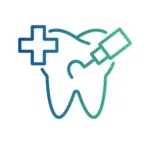
A dentist is a skilled healthcare professional focused on identifying, preventing, and addressing issues that impact the teeth, gums, and other components of the mouth and oral cavity. Dentists undergo years of academic and clinical training, earning either a Doctor of Dental Surgery (DDS) or Doctor of Dental Medicine (DMD) degree, depending on the institution.
In addition to general dental education, many pursue further specialization in specific fields such as:
Dentists are not limited to treating issues as they arise; they also play a preventive role by educating patients about oral hygiene practices. A routine dental examination involves not only checking for cavities but also screening for signs of oral cancer, bite issues, and jaw disorders. They serve as the first line of defense in identifying broader health concerns, as oral symptoms often mirror systemic diseases.
A dentist performs a variety of tasks aimed at maintaining and restoring oral health. Their role goes far beyond just filling cavities or performing extractions. They are responsible for comprehensive patient care through diagnostics, treatment planning, and preventative education.
Key responsibilities include:
In addition, dentists utilize advanced tools such as digital x-rays, intraoral cameras, and 3D scanners for improved diagnostic accuracy. They also work closely with dental hygienists and assistants to ensure high-quality care. Dentists serve patients across all age groups, adjusting techniques based on individual needs. Their work ensures that oral problems are not just treated but prevented, enabling patients to maintain lifelong dental health.
Dental procedures vary widely in scope and complexity, from basic preventive care to intricate surgical interventions. The specific treatment plan is designed based on individual patient needs and diagnostic findings.
Common Dental Procedures Include:
Before each procedure, patients receive a full explanation of the process, estimated recovery time, and pre- and post-care instructions. Many treatments are minimally invasive due to modern tools such as dental lasers and sedation dentistry, making procedures quicker and more comfortable.
Dental procedures are generally safe and highly effective when performed by qualified professionals, but they do carry certain risks. However, the benefits often far outweigh these potential drawbacks.
Benefits:
Risks:
Dentists take detailed patient histories, conduct risk assessments, and use sterile techniques to minimize complications. With adherence to aftercare instructions, most patients recover smoothly and benefit greatly from their treatments.
Recovery from dental procedures depends on the type of treatment and individual healing capacity. While many minor procedures require little to no downtime, more complex interventions involve a structured recovery phase.
What to Expect During Recovery:
Long-Term Outlook:
A proactive approach toward recovery and preventive care significantly contributes to sustained oral health and functional wellbeing.
Dentistry is a cornerstone of preventive healthcare that not only addresses pain or aesthetic concerns but also plays a vital role in early disease detection and overall well-being. From routine cleanings to advanced reconstructive procedures, modern dental care offers a comprehensive solution for every patient’s needs. Neglecting oral health can lead to severe consequences, but timely and effective dental treatment can restore function, boost confidence, and improve quality of life.
Oxford Hospitals stands as a trusted name in dental excellence, offering patient-centric services backed by advanced technologies and a compassionate team. With a focus on precision, comfort, and safety, it ensures that every individual receives tailored care suited to their oral health goals. Choosing a reliable dental care provider makes a meaningful difference not just for your teeth and gums, but for your holistic health.
Dentistry is the branch of healthcare focused on the maintenance, diagnosis, prevention, and treatment of issues related to the teeth, gums, jaw, and oral cavity. It encompasses a range of services—from cleanings and fillings to surgical procedures and cosmetic enhancements. Dentistry plays an essential role in maintaining not only oral health but also overall physical health, as oral conditions often indicate or influence systemic diseases.
Yes, individuals who complete dental school and are licensed to practice are called doctors. They hold either a DDS (Doctor of Dental Surgery) or DMD (Doctor of Dental Medicine) degree. While they are not medical doctors (MDs), their education and training qualify them as healthcare providers who are experts in oral health. These professionals are fully capable of diagnosing and treating oral diseases and performing various procedures safely and effectively.
Dentistry is the field or profession, while a dentist is the trained individual who practices within that field. Dentistry includes all aspects of oral care—from clinical treatments to research and education—whereas a dentist is the person delivering those services to patients. Essentially, dentistry is the science, and the dentist is the practitioner who applies that science in daily practice.
The term “dentistry” refers to the profession, not individuals. People practicing dentistry are called dentists. They are trained healthcare professionals who diagnose and treat issues involving the teeth, gums, and other parts of the mouth. Depending on their area of expertise, they may also be referred to as orthodontists, periodontists, prosthodontists, or endodontists—all of whom fall under the larger umbrella of dentistry.